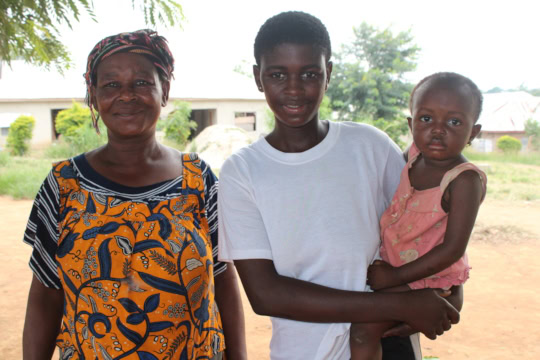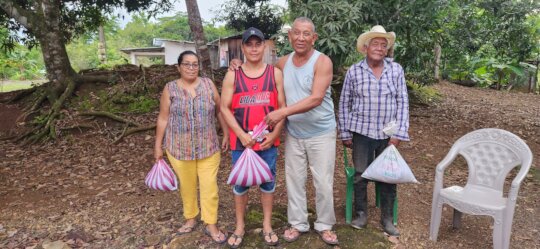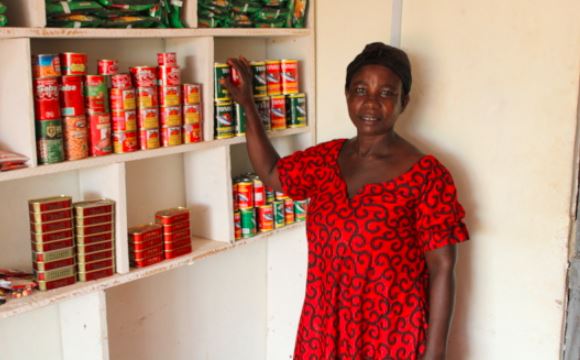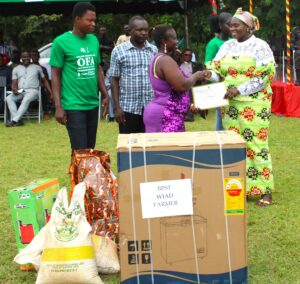Abdullai and Fatia’s Journey to a Better Life

Fatia and her children
Abdullai and his wife, Fatia, are a young couple who have faced struggles well beyond their years. The couple started their family in their native town of Dibasonye, in the Upper East Region of Ghana (one of the four poorest regions in Ghana), in which people live on less than one dollar per day. All three children of Abdullai and Fatia — Sule, Fatima, and Ibrahim — were born and raised in Dibasonye. Even though it was difficult to earn a living wage, Abdullai and Fatia did their best to feed their family.
Unfortunately, their hard work to keep their family fed became futile once tragedy struck. In 2015, Abdullai lost his main source of income after fire destroyed his maize farm. It became almost impossible for him to provide for his family. He was eventually forced to relocate in search of finding a new job. In their quest for a better life, Abdullai, Fatia, and their three children left to settle in Fankamawe, a village in the Ashanti Region.
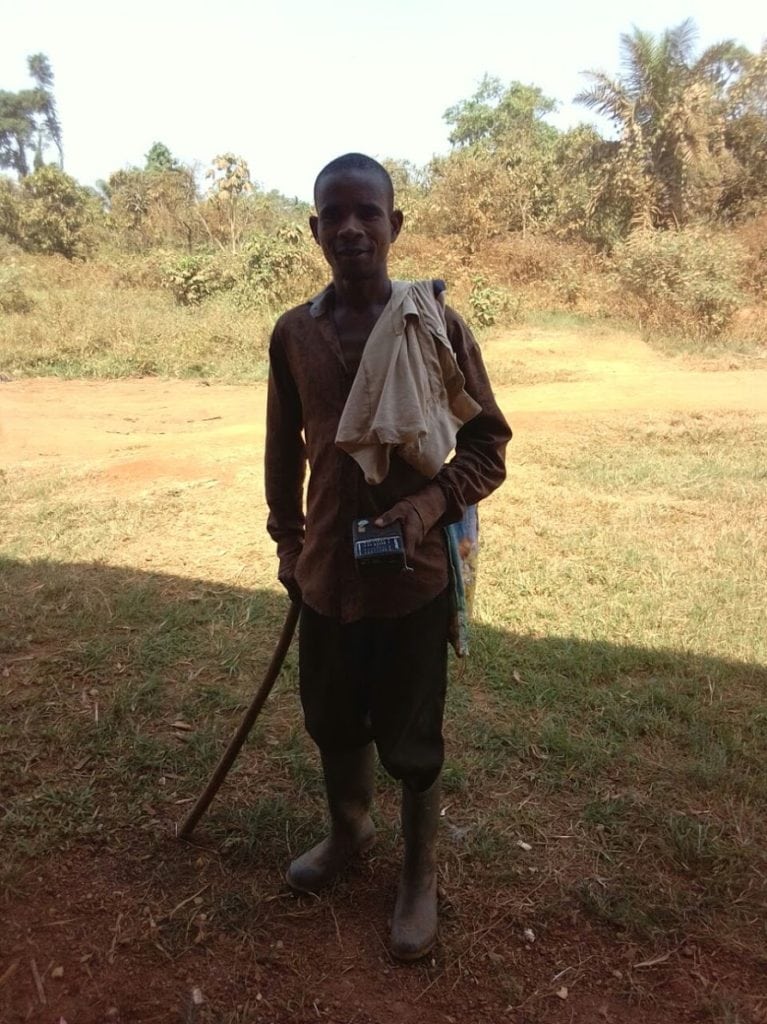
Abdullai (35 yrs) is now farming and working as a herdsman to provide for his family
Before moving, Abdullai’s brother had assured him that he would find a job either as a farm laborer or a herdsman. Finding a job was not as easy as Abdullai’s brother believed it to be. Abdullai told our staff at Self-Help, “When we first arrived at Fankamawe, I would wake up early morning with my wife and move from one house to another in search for people who needed help on their farms.” Some of the people he encountered were hostile and treated them both harshly. Sending their children to school was not a priority at the time, as their primary focus was on how to feed their children first. Although temporarily defeated, Abdullai was hopeful. He told us when he first met us, “Life here at Fankamawe has not been easy, but there are signs that if I work hard I will create a better future for my children.”
Thankfully, things have indeed changed for the better. By partnering with Self-Help, Abdullai and Fatia have both completed agronomic training sessions at our Young Adult Training Center to ensure they can maximize yields in the coming planting season. They also received an input loan so they’ll have all the seed and other inputs necessary to cultivate an acre of Quality Protein Maize (QPM). They’ll be able to use that QPM to ensure their children are getting a regular source of protein in their diets so they can achieve their biological potential. At harvest, the family will repay the loan in kind with a portion of the maize they grew, which is then used to support their local school’s breakfast program.
To their parents’ delight, Sule, Ibrahim, and Fatima are now in school. In addition to getting an education, the three children also get a healthy breakfast at school each morning. Fatia tells us, “It is such a great relief that the school feeds the children breakfast. It makes life easier for us, the parents who don’t necessarily have enough income.”
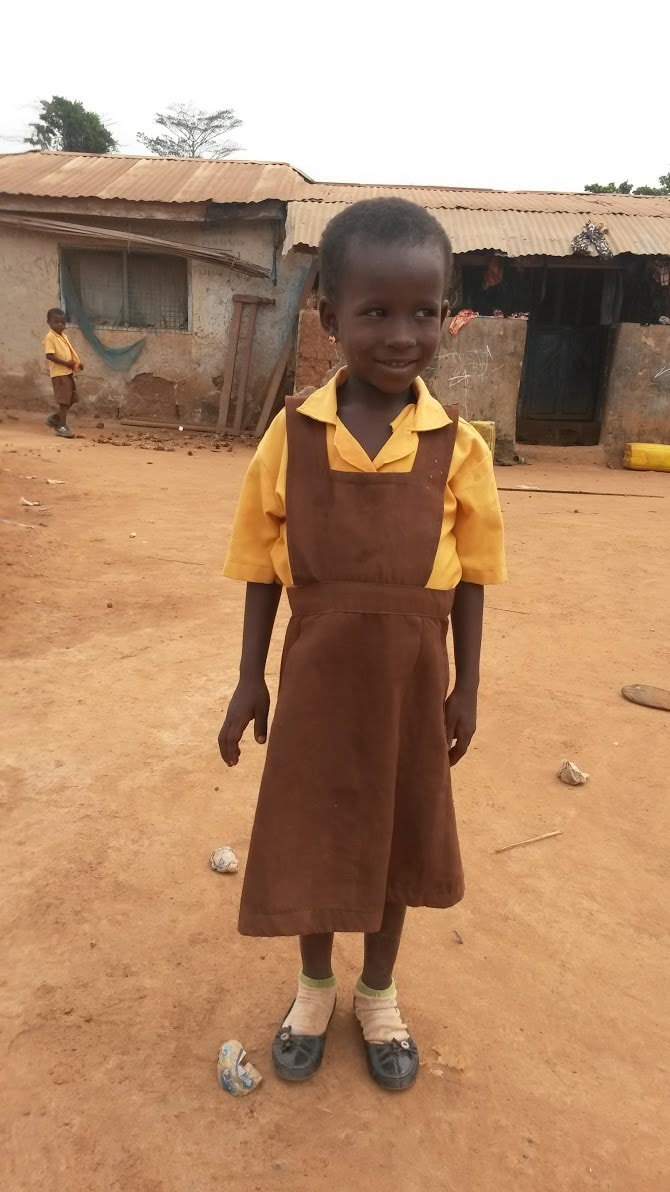
Fatima (6 yrs) now gets a nutritious breakfast through our school feeding program
When we last visited the family, Fatia was pregnant in her third trimester and was on her way to the farm in the morning. She confided in Self-Help, stating, “This pregnancy was unexpected. After Sule, I decided not to become pregnant again to be able to take good care of my three children.”
Though Fatia says she never intended to get pregnant for the fourth time, she and her husband are financially stable and their family is living well. “We are ready for our fourth child,” they told us. “Our problem of food insecurity is over because we joined the SHI QPM program and Abdullai has a second job as a herdsman.”
The sense of self-reliance developing in the Abdullai’s family is impressive. They are able to overcome challenges that come their way and build a better future for their children. We continue to watch the progress of Abdullai and Fatia’s family, along with many others as they continue to improve their lives and well-being through our programs.
UPDATE: Read about Fatima’s success in the school feeding program here.

